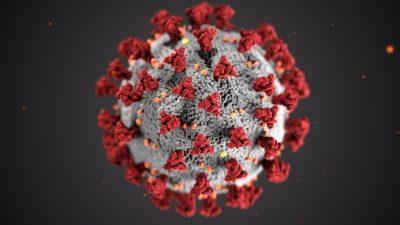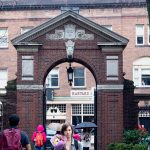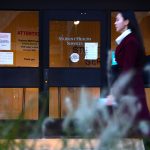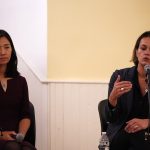
Mayor Michelle Wu announced the formation of the new 17-member COVID-19 Advisory Committee in response to the recent surge in COVID-19 cases during a press conference Monday.
The committee — made up of public health professionals and community, business and cultural leaders — will help make City decisions on public health policies, such as how to tackle new COVID-19 variants, to work toward ending the pandemic in Boston, according to a press release from the Mayor’s Office.
“I’m so grateful that everyone is willing to share their time because we are in a window of time to act, and look forward to receiving the wisdom and expertise of this group,” Wu said at the press conference.
COVID-19 has disproportionately affected certain minority groups, especially communities of color, said Jarone Lee, medical director of the Blake 12 Intensive Care Unit and an emergency physician at Mass General Hospital, in an interview.
“This task force, with the right composition and all the folks on it, and the list, as you can see, is pretty broad and has a lot of community groups,” Lee said. “I do think that Mayor Wu and her team will be able to hopefully get to these communities that have lower vaccination rates and also higher risk of having complications with COVID.”
Bisola Ojikutu, executive director of the Boston Public Health Commission and chair of the committee, said during the press conference COVID-19 cases and hospitalizations are on the rise, but vaccination among some of our most vulnerable populations is lagging.
While 67% of the overall population in Boston is fully vaccinated, only about one-quarter of all children in Boston aged 5 through 11 received one dose of the COVID-19 vaccine. Almost 60% of white non-Hispanic children have been vaccinated and only 35% of Asian, 10% of Latinx and 7% of Black children have received their first dose of vaccine, Ojikutu said.
“I urge Bostonians to get tested, to get vaccinated, to get boosted and to work with us to close these gaps so that every person has easy access to the public health tools they need,” Wu said.
Boston focused on four key strategies — increasing access to vaccination and boosters, increasing testing, enhancing health communication and doubling down on prevention — to end the pandemic, Ojikutu said at the conference.
“We have recently purchased and will be providing 20,000 free rapid antigen home tests to communities with the highest rates of COVID-19 and high barriers to purchasing test kits on their own,” she said. “We will be distributing these free test kits as well as masks prior to the holidays.”
Ojikutu said the City will make vaccine clinics more accessible throughout Boston to increase city-wide vaccination. New higher capacity clinics will open Dec. 11, Dec. 18 and two Saturdays in January, adding to the current walk-in clinics in the city.
Wu said Boston is in an “urgent situation” and the goal of the advisory committee is to move quickly in response to the first Omicron variant case in Massachusetts.
While more evidence is needed to answer any questions conclusively, Ojikutu said there is some evidence to suggest the Omicron variant may be able to evade immunity to prior infections, increasing the risk of reinfection.
“In this time of uncertainty, it’s important to remain vigilant but also to be calm,” Ojikutu said. “And most importantly, get your vaccine if you haven’t and receive your booster shot.”
Julia Koehler, a member of the committee, a pediatric infectious disease specialist at Boston Children’s Hospital and assistant professor of pediatrics at Harvard Medical School, said in an interview the emergence of the Omicron variant requires non-pharmaceutical interventions including masks, air filtration, ventilation, distancing and hand hygiene.
“Even with the Delta variant, we know that the vaccines are not a magic shield,” Koehler said. “What this variant illustrates [is] the literal truth of this saying none are protected if all are not protected.”
The City is anticipating a jump in cases over the holidays, Wu said.
“All the inevitable exposures that people have during travel is concerning,” Koehler said. “I would just call on everyone to use maximal caution, be thoughtful about our actions, use the tools that we have available.”




